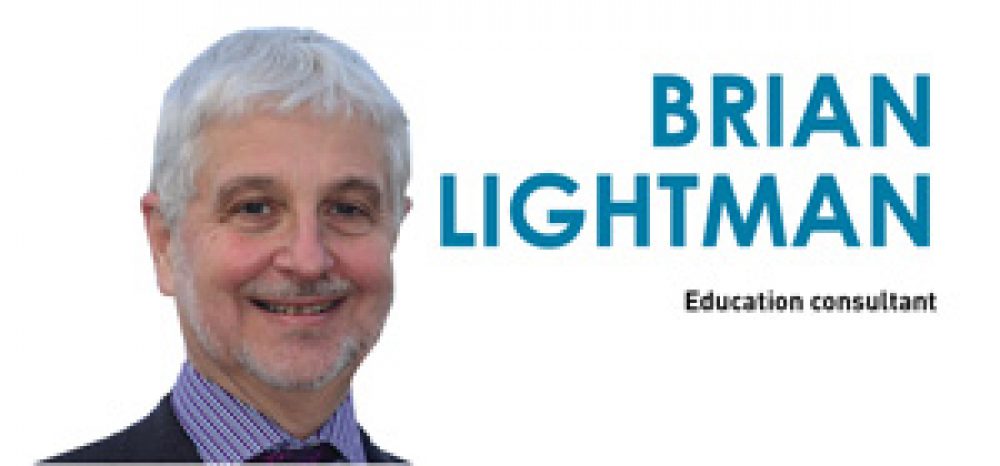By using the term ‘gaming’ to describe the practice of schools trying to improve their metrics, we are missing the real problem, which is the high-stakes accountability culture itself, says Brian Lightman
To coin a phrase from ‘Yes Minister’, Amanda Spielman’s announcement of an Ofsted investigation into the curriculum is a ‘brave’ decision, which I welcome. I will explain why.
It is absolutely correct that there should be a ‘deep and rich’ curriculum’ in every school. This is something I always placed at the heart of my vision as headteacher for which many of us share her passion. Grades are of course part of that but only a part.
Yet since 2010, instead of requiring certain things to be taught in schools through a statutory curriculum for all schools, it has been the accountability system that has been the dominating lever for curriculum design. The effectiveness of schools has been measured by the number of grades students achieve in certain examinations and the stakes have become higher each year.
Where schools miss targets headteachers lose their jobs
Where schools miss targets headteachers frequently lose their jobs. At present, even though Ofsted has begun some welcome changes, the fact remains that floor standards, performance tables and coasting schools criteria continue to drive behaviour. This was an explicit government intention.
Schools that fall below such measures know the Regional Schools Commissioner will be knocking at their door. None of these measures places the same weight on the wider aspects of a quality education that would enhance the richness and depth of the curriculum.
So of course schools focus on those indicators for which they are going to be held accountable. Making the right decisions is a deadly serious business upon which their careers depend. Of course they do everything they can to prepare students for the examinations and of course they do everything they can to fill the P8 ‘buckets’. At the same time the qualification reforms, the massive uncertainty and the latest advice from both Ofsted and Ofqual not to make predictions leave schools between a rock and hard place.
The term ‘gaming’ implies a general lack of moral purpose
So school leaders are in a quandary. Can they be confident and stick to their own vision? The true answer is that some can but others feel bound to look over their shoulders more. And yes, some go too far for reasons I understand but don’t welcome.
Nevertheless, most also try their very best to provide programmes and curriculum content that motivates their students and enables them to experience success. Hardly any are cheats and the term ‘gaming’, so often carelessly thrown about, implies a general lack of moral purpose that insults the majority of school leaders. The use of that term undermines a necessary debate.
So Ofsted’s investigation will go into some sensitive territory that could lead to some ‘brave’ conversations with government. Questions they will need to ask include:
– What does a deep and rich curriculum look like, who should decide and where are the boundaries of professional judgement?
– Is the relentless focus by policymakers on examinations as our key accountability indicator the root of this ‘corrosion’?
– When is it right to enter some (not all) pupils for qualifications which are not traditional GCSE’s but might give students recognition of aspects of their learning and experience of success?
– Is it not time to move to a more intelligent form of accountability of the kind that the Chief Inspector based on a much more holistic view of the education provided?
– Has current policy on performance management driven schools in directions which narrow rather than broaden the focus of teaching?
– Is the focus on school choice and the latest move towards selection forcing schools into a cut-throat culture against their neighbours?
– Will the government be prepared to act on those schools that are ‘losing’ ‘undesirable’ pupils, are blatantly breeching the admissions code by interviewing pupils or using other forms of covert selection especially when some of them are its favoured ones?
I fully recognise that there also need to be tough messages for some school leaders about moral purpose because some of our colleagues are letting the rest down badly. In that context I was pleased to read about ASCL’s work on ethical leadership.
Our education service certainly is a sick patient but it is the causes as well as the symptoms that need to be treated.
Our education service is a sick patient
Amanda Spielman’s speech pointed to a refreshing approach to school inspection which, rather than trying to catch schools out, provides a healthy balance between: recognition of the many positives; robust challenge where needed; and a truly independent assessment of the impact of education policies and the investment governments make.
That would really be a ‘force for improvement’. I wish her every success.
After all we are all here for one reason only. To give every child in our schools the very best start in life.
Brian Lightman is an education consultant







Your thoughts